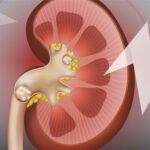Erectile Dysfunction (ED) Practical Guidelines
If you suffer from erectile dysfunction, your doctor will first want to check to see if you have an underlying medical condition that may be causing your problem. Most people experience this condition once or twice in their lifetime. The symptoms of this disorder may last for up to 3 months. Your doctor will also want to know about your health and sexual history. They may order additional tests, such as a rectal exam, to check for an underlying condition.
In 2016, the American Urological Association (AUA) Education and Research, Inc. (AUA) established a panel to develop recommendations for treatment of erectile dysfunction. The practice guidelines committee appointed a chair to oversee the project, and then a panel of physicians, including urologists and family physicians, were selected to participate. The panel received extensive peer review. After reviewing the comments, the chair and members of the panel revised the draft guideline and submitted it for approval by the AUA Practice Guidelines Committee. In addition, the Science and Quality Council reviewed the guideline, and the Board of Directors approved it.
The aim of the ED guideline is to provide clinical guidance for physicians, patients, and healthcare providers to improve the quality of life of men with ED. These guidelines aim to improve sexual function and minimize the burden of the disorder. They have been developed through consensus and evidence-based processes, and are intended to be applied with dynamic understanding of the causes of ED. Once you’ve identified the cause of your condition, your doctor can prescribe the appropriate treatment.
There are many different types of causes of ED. Some are physical, such as an underlying medical condition. A doctor can conduct tests to rule out underlying medical issues. If they’re diagnosed, these issues will be addressed and you can go back to enjoying sexual intercourse again. In addition to medical conditions, mental health conditions and lifestyle factors can cause erectile dysfunction in men.
A team medical professionals, such as the men’s sexual wellness physicians at Prestige Men’s Medical Center, may also perform blood tests to diagnose your problem. A lipid profile test measures lipid levels and can identify if there is an underlying medical condition. If so, your doctor may prescribe medication and talk therapy. A doctor can also check your thyroid function to make sure that it’s functioning properly. A thyroid hormone deficiency can contribute to ED. Blood hormone studies can also detect the presence of abnormal levels of sex hormones in your body.
In addition to drugs and lifestyle changes, surgery is also an option. For some patients, penile vascular surgery is recommended. However, this method is not appropriate for older men due to hardened arteries. Instead, ED patients may benefit from oral treatments such as PDE-5 inhibitors. These medications are considered to be safe and effective.
Alprostadil is another drug that may be prescribed for men suffering from ED. It is injected with a very fine needle and is administered by a healthcare professional. The success rate of this drug is approximately 85%. Although it may not cure your condition, it can help you achieve an erection.
Erectile Dysfunction (ED) is a condition that affects the ability of a man to achieve an erection. It is often caused by physical or psychological factors, and can be a sign of serious health problems. A physician can diagnose ED and recommend treatments that address the underlying cause.
Several different treatments for ED can help men regain normal sexual function and regain the pleasure of sex. Depending on the underlying cause, treatment can range from oral medications to surgery. In some cases, a doctor may recommend a combination of different treatments or refer a patient to a psychologist to discuss psychological issues.
If your doctor suspects that you suffer from ED, your first step should be to see if your health insurance covers treatment. Your coverage may depend on the type of treatment you’re receiving and whether your insurance covers sexual dysfunction. Make sure you consult with your insurance provider before beginning any new treatments.
ED is an important public health concern. The National Health and Social Life Survey surveyed 1,410 men aged 18 to 59 and documented a significant increase in incidences of ED and a decline in sexual desire. Those in their fifties were three times as likely to have problems with erections and low sexual desire. Furthermore, men in poor physical condition were more likely to suffer from ED.
Vacuum constriction devices are a surgical option for some men. These devices are placed over the penis, drawing blood into it and maintaining the erection. The device can remain in place for 30 minutes at a time. Although there are risks involved, the procedure is effective for most causes of erectile dysfunction.
There are many different treatment options for ED. Many of these involve medications. Some of them require injections. The needles used are very thin and short, and most patients don’t mind the procedure. Medications that increase blood flow are commonly prescribed. A trained counselor can help patients address any feelings of anxiety or guilt that may be affecting their ability to erection. A physician may also prescribe a natural treatment that doesn’t involve drugs.
Penile erections depend on healthy nerves and blood vessel systems in the penis. Nerves in the penis carry signals to the brain that help it maintain an erection. If these systems are dysfunctional, erections can be impossible. This can lead to negative personal effects, such as the avoidance of sexual intimacy.
A surgical procedure to restore erection can be a viable option for some men. A doctor can place a metal or acrylic cylinder over the penis. Lubricant is typically used to create a good seal. The cylinder produces a vacuum inside the penis, which triggers the erection. The band placed around the base of the penis holds the erection for at least 30 minutes.
Oral medications are another option for treating ED. These medications may improve blood flow to the penis, which can stimulate spontaneous erections. Proper dosages of these drugs can help maintain blood flow to the penis and prevent penile shrinkage. Other options include vacuum erection devices and physical exercises.
Visit “Prestige Men’s Medical Center
5100 W Kennedy Blvd Suite 180 Tampa, FL 33609
800-541-1019
Monday-Friday 9am-6pm
https://prestigemensmedical.com”








